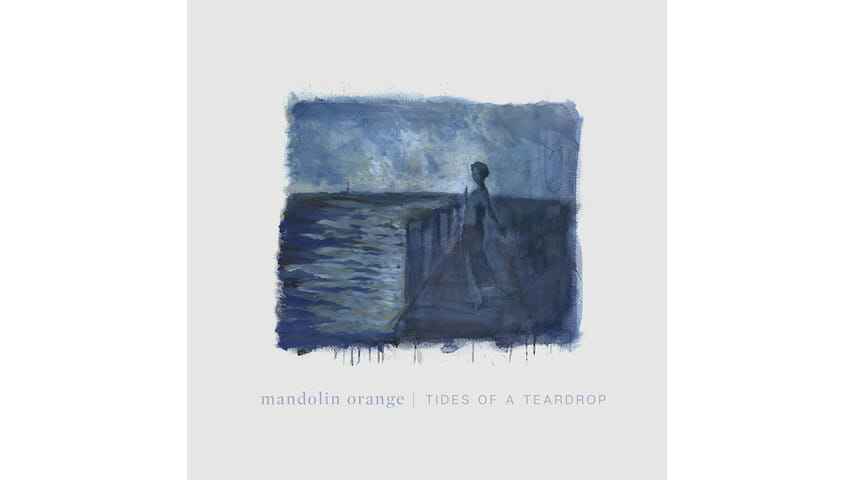Mandolin Orange: Tides Of A Teardrop

The duo is a well-worn model for making folk music, but it works. Americana lend itself well to duets and harmonies, so very often, pairs just make sense. Mandolin Orange, made up of musicians Andrew Marlin and Emily Frantz, have successfully mastered the art of the partnership. Partly because they’re seasoned collaborative instrumentalists, and partly because, after almost a decade of playing together, they’re so open with one another—and, therefore, their listeners.
On Tides of A Teardrop, the North Carolina duo’s fifth studio album, Marlin and Frantz leave it all out to dry—loss, pain, heartbreak and the process of emerging from it all in one piece—in a way that feels more comforting than confessional. Tides of A Teardrop is a cozy cradle of acoustics and anecdotes on grief and love.
Marlin and Frantz, who share instrumental and songwriting duties, know how to draw maximum emotion from a song. On the very first track and second single, “Golden Embers,” they’re already seeking pathos and exploring nostalgia, greeting us “just like an old friend, kinder than expected.” It’s a track about making room for memories, even as grief abides (in Marlin’s case, the death of his mother). Later on the song, they proclaim, in a wizened sigh, “Loss has no end / it binds to our connection.” “Golden Embers” is a beautiful way of looking at life’s dark moments—maybe those pitfalls brings us closer together.
-

-

-

-

-

-

-

-

-

-

-

-

-

-

-

-

-

-

-

-

-

-

-

-

-

-

-

-

-

-

-

-

-

-

-

-

-

-

-

-








































